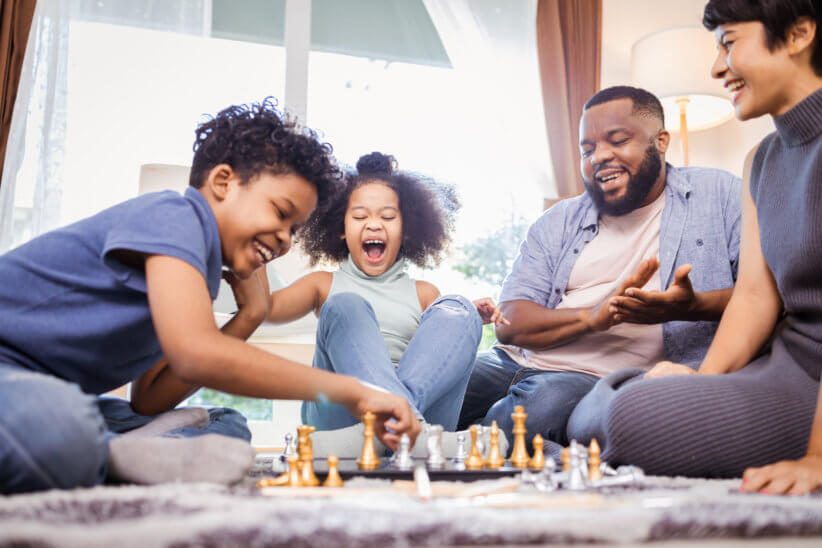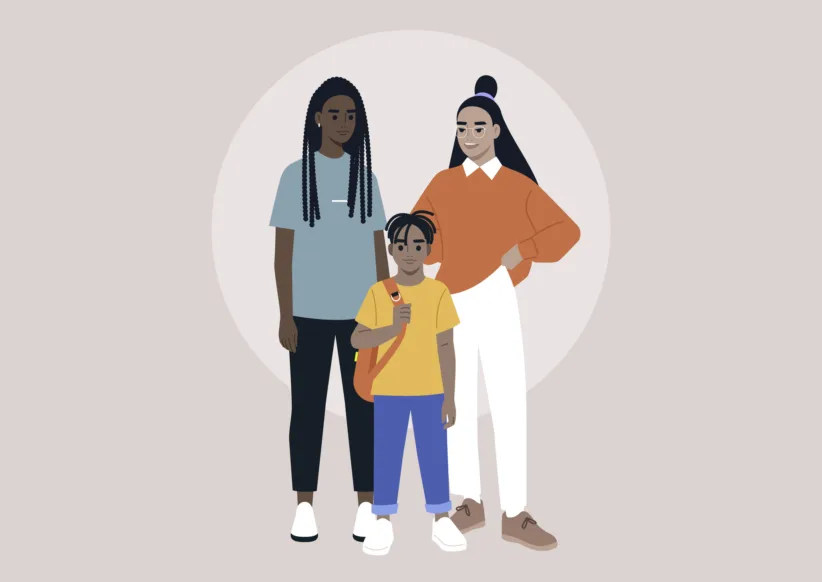While going about our daily lives, we tend to forget that death is really a part of life.
But is there an afterlife? Many religious traditions claim there is an afterlife of some type; that death is not the end, but rather, a transition. Obviously, nobody knows for sure, but there are cultures that believe in several afterlife possibilities.
Numerous accounts of near-death experiences describe an amazing beyond, filled with endless love, forgiveness and compassion, as well as knowledge far beyond what we as mortals can grasp or comprehend.
Yet, we fear death mostly because it is the great unknown.
So, how do we explain this mysterious, scary, complex concept to our curious children?
Parents have been asking that profound question for generations. But these days, it’s more important than ever to talk with your kids and teens about the meaning of death because they’re witnessing and hearing about so much violence in the media.
With more school shootings and other horrific incidents happening everywhere in recent years and just in recent weeks, it’s getting harder and harder to shelter them from a dangerous and scary world. That’s why parents need guidance in understanding how to broach these sensitive topics to help children deal with loss and death, whether it’s in their family or in their city.
Broaching these subjects isn’t easy, but discussing them with youngsters should make them feel comforted, especially if they’re trying to cope with sadness, fear, and confusion.
Dr. Anne Klaeysen, a parent and Brooklyn resident, has decades of experience in counseling as a Humanist Life Advisor at Columbia University. She’s also a leader of the New York Society for Ethical Culture in Manhattan, where she helps oversee the organization’s unique Ethics for Children class, which focuses on development of the moral reasoning process. Through stories, discussions, service projects, field trips, and art activities, classes encourage the exploration of ideas and issues in a safe, inclusive environment.
At a recent class, she invited parent and author J.R. Becker to introduce his inspiring, life-affirming new book, What Happens When We Die?. Through fun verses and whimsical illustrations, “the book helps youngsters cope with and understand death,” Becker says, “namely, by allowing room for curiosity about an afterlife, sadness about loss, but then finally, celebrating the things we actually know: How our atoms rejoin the universe, which remains forever changed by our lives. How our energy lasts forever, along with the stories of our loved ones we keep alive by honoring their memories. And most of all, how mortality can inspire us to appreciate the incredible opportunity we’ve been given: to live the best, most meaningful lives we can, surrounded by the people we love.”
Dr. Klaeysen offers valuable suggestions for parents and caretakers, to make sure they’re talking about death, loss—and violence—with nuance and care.
Tammy Scileppi: What should parents know when broaching the delicate topic of death with their kids?
Dr. Anne Klaeysen: Parents should always listen, empathize, and know when to stop, so as not to overwhelm their child.
In my experience, honesty and empathy are essential. And they should always be prepared to talk about death but not force a discussion if their children aren’t interested. It can come up naturally when telling family stories. For example, a child may remind us of an ancestor who has died. When I was a child, my father would sometimes pull out the projector and pull up the screen to view slides and we would fondly remember relatives who had died.
I think fear and anxiety about death come from not talking about it and treating it as a taboo subject. Death should always be presented as a natural part of life.
TS: Kids and teens deal with death in different ways. How can parents ease their worries?
AK: Again, it is most important to listen to your children’s thoughts and concerns and to be aware of what is age-appropriate.
Young children turn to their parents for comfort, explanation, and behavior modeling. When my uncle and godfather died, my son Andrew (now 34) was 3. He observed me crying during the funeral and stroked my back and said: “I’ll sing to you, so you’ll feel better, Mommy,” then launched into “Row, row, row your boat.” Again, empathy.
Teens process a lot of their experiences with their peers. After 9/11, my children grew weary of all the well-meaning adults offering counseling and just wanted to be left alone to deal with it themselves. That is not to suggest that we adults and parents should abandon them. Rather, we should listen deeply to what they really need and be available: present but silent. Talking at them is a waste of breath and risks losing their trust.
School counseling centers should offer peer counseling training to students. It doesn’t replace, but effectively supplements, professional counseling.
When my daughter, Emily (now 32), was at MS 51, a classmate was killed because she stepped between her parents during a domestic dispute. Her father stabbed her instead of her mother. Not only did Emily talk to me about this tragedy, she also let me know that she didn’t think her school was handling it well and asked me for advice. Together we found a community group that offered school programs on domestic violence and convinced the administration to host an assembly program.
This was an occasion when I held her when she cried, listened to her criticism, and empowered her to take action. Such are the phases of grief.
TS: Escalating gun violence and mass shootings are causing fear and panic across the nation. What was it like when your kids were growing up?
AK: I was surprised to learn how many school shootings there have been in this country since 1840. Of course, most of them resulted in only one or two deaths and as many injuries. It was on April 20, 1999, two days after my daughter’s 13th birthday, that we learned the horror of a mass school shooting: 15 dead and 21 injured at a high school in Columbine, CO. We discussed this at great length around the dinner table. What were the shooters’ motivations? Where did they get the weapons? Did anyone suspect what they were planning? What responsibility did their parents have? How do you even begin to fathom the shock and grief? Lots of questions, few answers.
Talking about scary stuff really helps, especially during these highly stressful, violent times. But while you’re doing that, remember to hold your children real close and hug them every chance you get.
By the way, regarding the possibility of an afterlife, Dr. Klaeysen says she is not a believer: “It simply makes no sense to me, and I have no need to pretend that it exists. To paraphrase American Transcendentalist Ralph Waldo Emerson, ‘we are such stuff as stars are made of, and science bears that out.’ As a Humanist, I accept that I am part of nature: my body will return to its earthly elements and my consciousness will cease to exist. Such finality makes life all the more worth living, in my opinion.”
Ethics for Children class at New York Society for Ethical Culture (2 W. 64th St. between Broadway and Central Park West, ethical.nyc/youth) every Sunday from 11am to 12:30pm (unless otherwise noted on website). Classes are free to families who are members of the Society, or donation-based entry from non-members. Parents may stay with their kids.
Tammy Scileppi is a Queens-based freelance writer and journalist, parent, and regular contributor to New York Parenting. Interviewing hundreds of New York City’s movers and shakers has been an amazing adventure for her. Scileppi’s work has appeared in a variety of media outlets. She has also written book cover copy for Simon and Schuster.





















